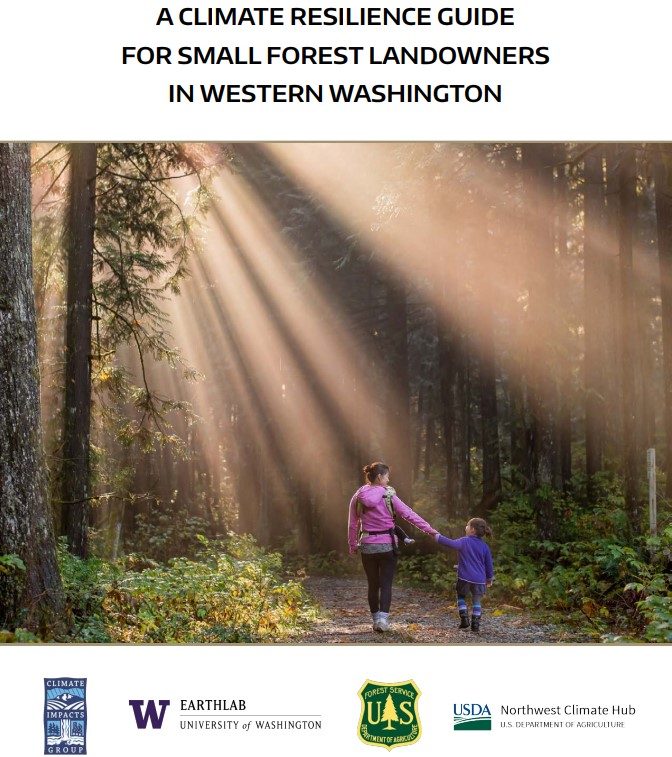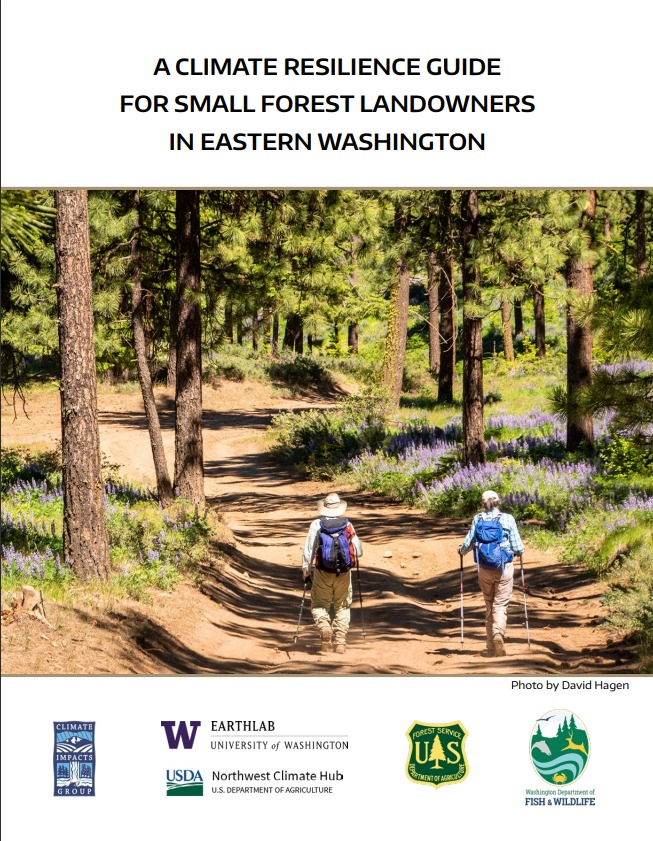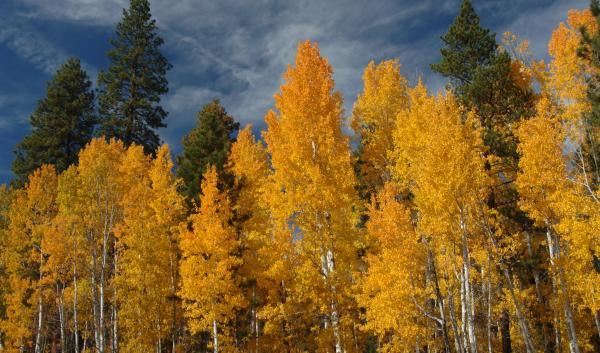Landowners value and care for their forests for reasons that include improved wildlife habitat, aesthetics, recreation, and timber. In Washington, 15% of forested lands are owned by small forest landowners (2-2500 acres). As such, the management decisions of small forest landowners can have implications for all of Washington's forests. Understanding the impacts of climate change can help small forest landowners make management decisions that build climate resilience on their lands and throughout Northwest forests.
To assist landowners in making climate-smart management decisions, the Climate Resilience Guide for Small Forest Landowners describes climate impacts on forests and potential management actions that landowners can take to increase resilience to climate change on their land. The guide is geared towards small forest landowners in western Washington and organizations such as nonprofits, local and state governments, and conservation districts that support landowners in managing small forests.
The guide summarizes four key impacts of climate change on western Washington forests: summer moisture stress, wildfire, invasive species, and forest insects and diseases. For each impact, specific actions are listed that small forest landowners can take to reduce the consequences of climate change and to increase forest health and resilience. The guide also includes information on education and collaboration opportunities to help small forest landowners implement management actions.
-
Climate Resilience for Small Forest Landowners in Western Washington

-
Climate Resilience for Small Forest Landowners in Eastern Washington

Northwest
The Fire Adapted Communities Learning Network offers resources, tools, and connections to help individual communities collectively reduce wildfire risk and engage with similar communities in the state.
Know Your Forest is a site that introduces forest landowners to actions that can improve forest habitat in the Northwest.
Alaska
Alaska Department of Natural Resources offers the Individual Forest Landowners page to provide information on defensible space, pest management, and forest regeneration in Alaska.
Alaska Integrated Pest Management provides information on long-term management of pest problems with minimal impact on human health, the environment and non-target organisms.
Idaho
Idaho Department of Lands’ Assistance for Forest Landowners provides tools to help landowners find private forestry specialists, forest stewardship programs, educational events and publications, and forestry after wildfire assistance.
Idaho Integrated Pest Management provides educational information and resources for the pest management needs of Idaho.
Oregon
Oregon Department of Forestry maintains a guide for Helping Forest Landowners to grown and manage forests, protect forests from insects and disease, and protect water and natural resources.
- Stewardship Foresters provide free technical assistance to private forest and small woodland landowners.
Oregon State University offers a Master Woodland Manager program for private landowners who are interested in intensive forest management training.
Oregon Integrated Pest Management offers educational information, resources, and events for the pest management needs of Oregon.
Washington
Washington Department of Natural Resources Wildland Urban Interface (WUI) map defines the extent of the WUI. If your property is in the WUI, taking action can reduce wildfire risk.
Washington Integrated Pest Management is an effective way to control invasives and develop healthy plant communities.
Washington Department of Natural Resources stewardship foresters can help forest landowners to achieve management goals and sustainably manage forests.




